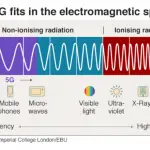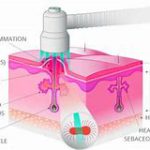Last Updated on 1 year by Francis
Negative ions are molecules that carry an extra electron, giving them a negative charge. These ions are increasingly recognized as having a positive impact on physical and mental well-being. In this article, we will explore the best negative ions and their potential benefits.
Contents
Negative Ions: What Are They and Why Do They Matter?
Negative ions are molecules that contain an extra electron, giving them a negative charge. They are present in the air we breathe, especially in natural environments such as forests, waterfalls, and beaches. Negative ions are believed to have a range of health benefits, including improving mood, reducing stress and anxiety, and boosting the immune system.
The Science of Negative Ions
Negative ions are created in nature through a process called ionization, which occurs when air molecules are broken apart by sunlight, radiation, or moving water. Negative ions are also produced by electrical devices such as air purifiers and ionizers. When negative ions are inhaled, they are believed to interact with the body in several ways, including increasing the production of serotonin, a neurotransmitter that regulates mood and sleep.
The Benefits of Negative Ions
Research has shown that negative ions can have a range of health benefits. For example, studies have found that exposure to negative ions can reduce symptoms of depression and anxiety, improve cognitive function, and enhance overall well-being. Negative ions are also believed to have a range of physical benefits, including boosting the immune system, reducing inflammation, and improving respiratory function.
How Negative Ions Can Improve Your Health
Negative ions can benefit your health in several ways. Here are some of the key benefits of negative ions:
Spending time in natural environments such as forests, waterfalls, and beaches is one of the best ways to increase exposure to negative ions and benefit from their range of health benefits, including improving mood, reducing stress, boosting immune function, reducing inflammation, and enhancing cognitive function. Negative ion generators and air purifiers, Himalayan salt lamps, and negative ion supplements are also available options to increase exposure to negative ions, but their effectiveness is not well-established.
1. Improving Mood and Reducing Stress
Negative ions are believed to have a calming effect on the body and mind by reducing levels of the stress hormone cortisol. Studies have found that exposure to negative ions can improve mood, reduce symptoms of depression and anxiety, and promote feelings of relaxation and well-being.
2. Boosting Immune Function
Negative ions are believed to stimulate the production of white blood cells, which are responsible for fighting off infections and diseases. This can help to boost the immune system and reduce the risk of illnesses such as colds and flu.
3. Reducing Inflammation
Inflammation is a natural response to injury or infection, but chronic inflammation can contribute to a range of health problems, including arthritis, heart disease, and cancer. Negative ions are believed to have an anti-inflammatory effect, which can help to reduce inflammation and promote healing.
4. Improving Respiratory Function
Negative ions are believed to have a positive effect on the respiratory system by improving lung function and reducing symptoms of respiratory illnesses such as asthma and allergies. This is because negative ions can help to neutralize harmful pollutants and allergens in the air.
5. Enhancing Cognitive Function
Studies have found that exposure to negative ions can improve cognitive function, including memory, attention, and processing speed. This is because negative ions can help to increase blood flow and oxygen to the brain, which can improve brain function.
How to Increase Your Exposure to Negative Ions
There are several ways to increase your exposure to negative ions, including:
Spending Time in Nature
One of the best ways to increase your exposure to negative ions is to spend time in natural environments such as forests, waterfalls, and beaches. These environments are rich in negative ions and can have a range of health benefits.
Using Negative Ion Generators and Air Purifiers
Negative ion generators and air purifiers can also be used to increase your exposure to negative ions. These devices work by releasing negative ions into the air, which can help to neutralize harmful pollutants and allergens.
Using Himalayan Salt Lamps
Himalayan salt lamps are another way to increase your exposure to negative ions. These lamps are made from salt crystals that are believed to release negative ions when heated by a light bulb or candle.
Taking Negative Ion Supplements
Negative ion supplements are also available, although their effectiveness is not well-established. These supplements usually contain minerals such as tourmaline and zeolite, which are believed to release negative ions when ingested.
FAQs for the topic: the best negative ions
What are negative ions?
Negative ions are molecules that are charged with an extra electron. They are present naturally in the air around us, particularly in environments such as forests, mountains, and waterfalls. They are also produced artificially by various devices such as air purifiers and ionizers. Negative ions are believed to have several health benefits, including improving mood, reducing stress and anxiety, and boosting overall well-being.
How can negative ions benefit our health?
Negative ions are believed to have a range of health benefits, including:
-
Boosting mood and mental clarity: Negative ions have been shown to increase the levels of serotonin in the brain, which can help to improve mood and mental clarity.
-
Aiding in respiratory health: Negative ions are thought to have an anti-inflammatory effect on the respiratory system, which can help to reduce symptoms of asthma, allergies, and other respiratory conditions.
-
Reducing stress and anxiety: Negative ions are believed to have a calming effect on the nervous system, which can help to reduce stress and anxiety.
-
Improving sleep: Negative ions can help to improve the quality of sleep by reducing the amount of positively charged ions in the air, which can interfere with sleep.
What are some sources of negative ions?
Some sources of negative ions include:
-
Nature: Certain natural environments, such as forests, mountains, and waterfalls, are known to produce high levels of negative ions.
-
Air purifiers and ionizers: These devices are designed to artificially generate negative ions, and can be used in homes and workplaces to improve air quality.
-
Salt lamps: Salt lamps are lamps made of Himalayan salt crystals, which are believed to generate negative ions when they are heated by a light bulb.
How can I choose the best negative ion generator for my needs?
When choosing a negative ion generator, there are a few factors to consider:
-
Type of generator: There are several types of negative ion generators, including air purifiers, ionizers, and salt lamps. Consider which type will best suit your needs.
-
Area of coverage: Different generators will have different coverage areas, so consider how large the space is that you want to use it in.
-
Features: Some generators will have additional features, such as timers and adjustable ion output. Consider which features are important to you.
-
Price: Negative ion generators can vary in price, so consider your budget when making a decision.

.jpg)
.jpg)
.jpg)
.jpg)


